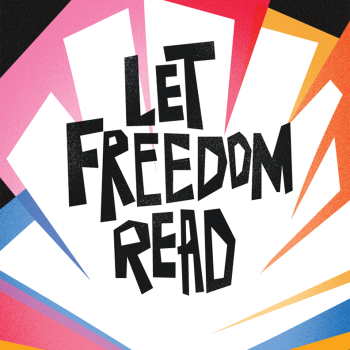Get ready to celebrate Banned Books Week!

Event Description
Challenges to books and other materials are on the increase in school and public libraries (see ALA's Frequently Challenged Books page for details). Check out the list of titles that NCTE has worked to protect! Banned Books Week, celebrated September 22-28, 2024, draws attention to the issue of censorship and how it can best be combated.
Classroom Activity
Begin by polling students. Ask how many of them are familiar with the following titles:
- Captain Underpants series
- A Wrinkle in Time
- The Adventures of Huckleberry Finn
- The Harry Potter series
- The Higher Power of Lucky
- Scary Stories to Tell in the Dark
- In the Night Kitchen
- Bridge to Terabithia
- The Stupids series
- The Bluest Eye
After the poll is completed, ask students what they think those titles have in common. Answer: They are all censored or challenged books.
With the class, brainstorm reasons these books might have come under attack. (Be certain to have the answers for them, too. They are available from various sources, including the American Library Association's Frequently Challenged Books page.) Why do people object to books and try to have them banned? Are there books from which students should be sheltered? Identify the common reasons why books are challenged (language, sexual content, political incorrectness, religious content, and so forth).
Websites
This site offers resources for celebrating Banned Books Week. Included are Banned Books Week news, events and materials.
The Online Books Page presents a brief look at book banning with links to online texts of books banned by legal authorities and schools.
The National Coalition Against Censorship, an alliance of fifty-two participating organizations, is dedicated to protecting free expression and access to information.
NCTE offers advice, helpful documents, and other support at no cost to teachers faced with challenges to literary works, films and videos, drama productions, or teaching methods.